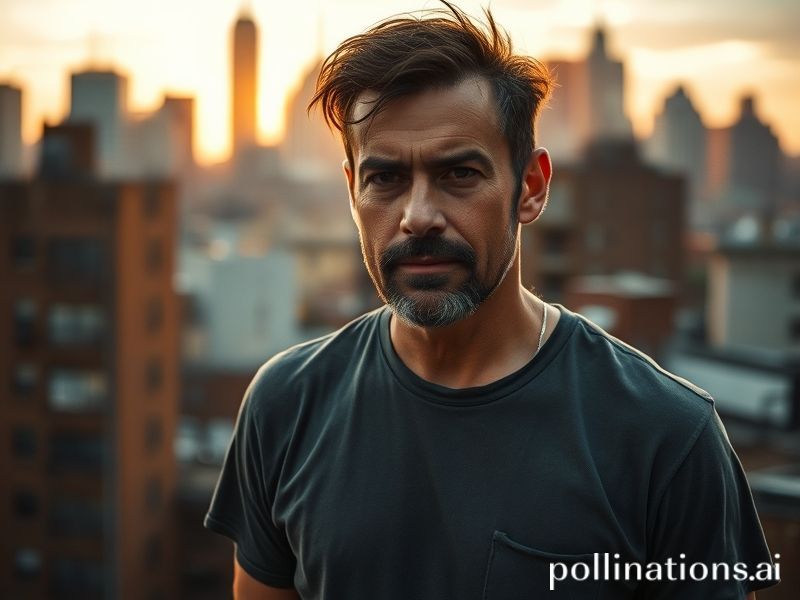Frank Grillo: The Planet’s Favorite Aging Avenger in a World Running Out of Heroes
Frank Grillo: The Last American Tough Guy the World Still Needs
Somewhere between a bar fight in Naples and the latest Marvel spin-off, Frank Grillo has become the planet’s accidental cultural attaché for the concept of “still hitting back after the credits roll.” While other Hollywood exports arrive gift-wrapped in algorithmic niceness, Grillo lands like a blunt object wrapped in a leather jacket—an aesthetic the international market has quietly decided it cannot live without.
From São Paulo grind-house marathons to Seoul subway ads selling protein powder, Grillo’s weather-beaten grimace is now shorthand for a very specific late-capitalist fantasy: the lone man who can still throw a punch when the supply chain collapses. In Turkey, bootleg Blu-rays of “The Purge: Anarchy” circulate with subtitles that translate his character’s every grunt as “economic policy critique.” In Lagos, ride-share drivers keep dashboard shrines to his jawline, presumably for traffic-jam inspiration.
The joke, of course, is that Grillo’s brand of bruised machismo is itself a global commodity—minted in Los Angeles focus groups, refined on Bulgarian sound stages, and shipped back to us shrink-wrapped in Dolby Atmos. Yet audiences from Jakarta to Glasgow still line up to watch him snarl at oligarchs, cartels, and the occasional demigod, as if personal violence were the final tariff on an otherwise borderless world.
One could argue that Grillo’s worldwide utility is purely escapist: a two-hour visa to a universe where problems can be roundhouse-kicked into submission. But beneath the cracked ribs lies a darker recognition. As climate summits peter out into photo-ops and supply ships idle outside ports named after dead empires, Grillo’s fists feel like the last functional piece of infrastructure left. When he head-butts a hedge-fund vampire in “Boss Level,” a pub in Manchester erupts like it’s the 1966 World Cup. When he stabs a cartel accountant in “Wheelman,” an Uber driver in Caracas nods in grim solidarity—some ledgers, the gesture implies, only close at knifepoint.
Even the Chinese box office—usually allergic to unvarnished American alpha energy—has allowed him a side-door visa via co-productions, pairing him with local stars who teach him the Mandarin for “insurance won’t cover this.” The films open with a disclaimer that all blood is “synthetically patriotic,” which is bureaucratic poetry for “we know what you came here to see.”
Yet the real miracle is smaller: Grillo has survived the death of the mid-budget action movie by becoming its walking obituary. Every streaming platform’s algorithm now funnels viewers toward his back-catalog like a hospice nurse whispering, “There, there, explosions still exist.” Meanwhile, European critics clutch their festival passes and wonder aloud how a man who looks like an insurance adjuster’s worst nightmare became the face of multinational catharsis. The answer is simple: the world is currently outsourcing its rage to anyone who still looks like he can carry it.
At 58, Grillo still wakes up before dawn to box, then spends the rest of the day apologizing to his knees. He will tell interviewers—whether in Madrid or Manila—that the secret is “just staying in the fight,” a phrase that sounds motivational until you realize every global institution is using the same line while quietly leaving the ring. Perhaps that is the final, sour punchline: long after the United Nations has rebranded as a co-working space, Grillo will still be somewhere in Belgrade, filming a sequel where he rescues a kidnapped lithium supply chain with nothing but a borrowed Glock and a Spotify playlist titled “Late-Stage Everything.”
And we will watch—because in a world that can’t decide whether to ban plastic or just rename it, watching one man bleed for our sins feels almost like accountability. Almost.







